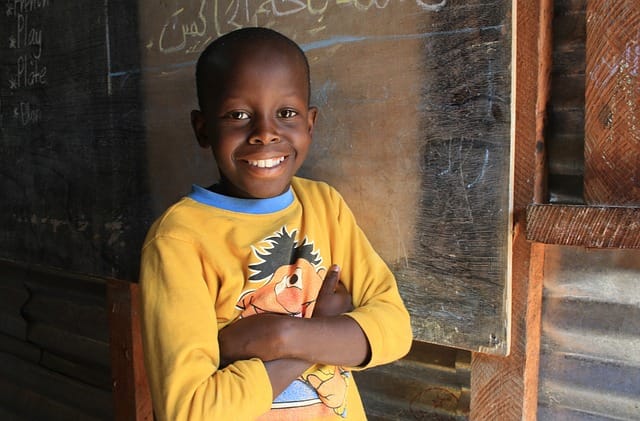America, Wake Up
Isn’t it time America trained its children for success?
We can no longer assume that raising and educating the next generation is solely the school’s responsibility. Every parent wants their child to thrive, but when children lack support and live in poverty, many give up hope before they ever get a fair chance.
When we think of academic success in the U.S., one group often comes to mind: Asian students. But why is that? Why do certain immigrant groups seem to excel in education and science, surpassing their U.S.-born peers? It’s time to take a deeper look—and to ask ourselves how we can emulate that success.
Train the Children
Take the Nigerian-American community, for example. Like Asians, Nigerians often excel in science, medicine, and academia. Talk to any Nigerian parent, and you’ll see pride glowing on their face as they share stories of their children winning scholarships, attending prestigious universities, and pursuing careers in fields like engineering, law, and medicine.
Is their success due to food like Jollof rice and chicken (as some jokingly suggest)? Or is it the cultural emphasis on education, discipline, and hard work? The truth likely lies in a combination of family structure, community support, and a deeply ingrained hunger to succeed despite humble beginnings.
Cultural Foundations for Success
The Immigration and Nationality Act of 1965 opened doors for highly skilled immigrants—especially those from Africa and Asia—to enter the U.S. Often, these immigrants came already equipped with formal education, professional training, and English language skills.
In both African and Asian cultures, there is a shared foundation of clan unity and extended family support. Grandparents, aunts, and uncles step in to guide, mentor, and discipline the children when needed. This creates an environment of unconditional love mixed with accountability, allowing children to thrive even in low-income situations.
They may live together in small spaces and work multiple jobs—but education remains a top priority. They are raising the next generation of doctors, engineers, scientists, and leaders.
Time to Wake Up, America
Many immigrants arrive with little but manage to build lives of success and contribution. Nigerians alone have produced multiple MacArthur “Genius Grant” winners in the past few years—a feat that shows what’s possible when education, culture, and family align.
Why can’t we replicate this success model in the broader American context?
The Real Difference: Early Training
These families instill values early:
-
Discipline
-
Responsibility
-
Respect for education
-
Support from elders and the community
They teach children that hardship is not a reason to give up but motivation to strive harder.
In contrast, many American teens, especially from underprivileged backgrounds, lack guidance, structure, and belief. A large percentage come from single-parent homes, and without consistent encouragement, many fall through the cracks.
Train the Children, Transform the Nation
It’s time for America to wake up. If we want to see real, lasting progress, we must learn from the examples of cultures that prioritize training and discipline. We must:
-
Invest in community-led mentoring programs
-
Reinforce family values and structure
-
Normalize educational excellence across all demographics
-
Equip children with life skills and emotional resilience
The Bottom Line
All children, regardless of their background, deserve access to quality education, structure, love, and opportunity. When we train our youth with intention, we raise leaders, not just graduates.
It’s not too late to rewrite the narrative.
America, the time to train our children is now.



I agree that parents should be involved in their childrens education and not just leave it up to the schools, but there are tons of very bright kids that grow up to be quite successful out there so I think that many parents are doing a good job — and there are plenty of uneducated youth in other countries so I don’t know how I feel about the comparison in general.
Alison, Thank you for comment . Yes I am aware there are children & parent that does a good job. Just focusing on these two group.
Many kids in the U.S. excel as well and have parents who support them and put family first. I’m not sure the comparisons really apply, it is too generalized. It is more an issue of government funding and curriculm.
Thank you for your comment.
Jollof rice is so good though. Your mention of it made me crave it. I think one difference is that Americans tend to take education for granted.
Glad you like it and you are correct. Some american take the education here for granted.
Yes it is always never too late for starting something good. And for kids it is never too late. I liked the post and it was beautifully written.
Lubna, Glad you like the post. Children need someone to care for them.
This is a powerful post that really speaks on the issues here in the US. Parents do need to start investing more time in their children’s education. It goes beyond what is taught in the classroom. I don’t feel that our current free educational system is where it should be. There are of course areas that do excel, but not across the entire US.
Taya, Glad you like it. Yes It is time we all come together.
Very good post. Young people will do what is expected of them. We should expect more from our children.
Debbie, we just have to expect the best and hope they will take our advise.
Great post. I do feel that parents should take a more active part in their child’s education. The current education system in the US is not where it should be. There are areas that excel better than others and I think this is because of the lack of funding for some of our schools. I have seen schools where they are getting new things while others are still using outdated technology.
Celeste, Yes the parents need to take more active role in the care of there child and also the community leaders. Just my personal views.